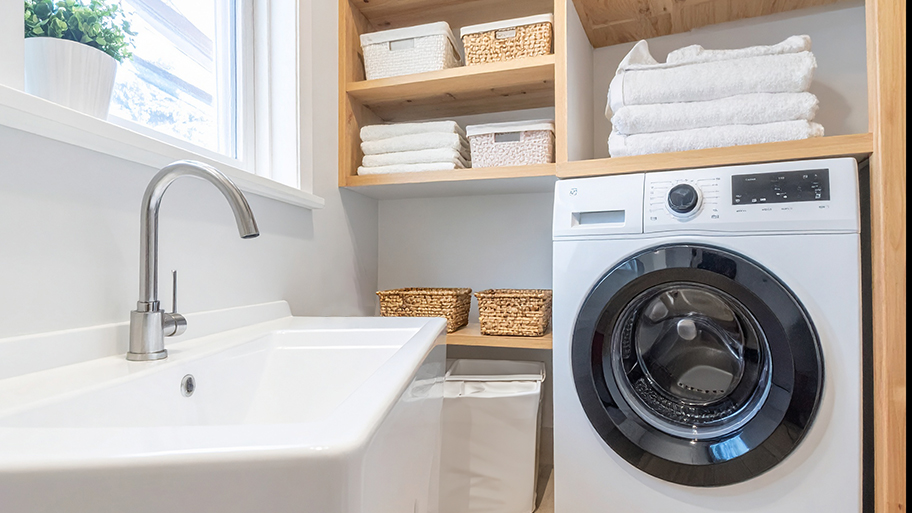
Worried about water leaking around your toilet? You may have a faulty toilet flange. Learn more about the cost to replace a toilet flange in our guide.
Composting toilets conserve water and energy by diverting waste from traditional plumbing systems and transform it into usable compost


Traditional toilets flush waste to the sewer or a septic tank. But what if that isn’t an option, or you want a more eco-friendly option? Either by necessity or choice, some people decide that a composting toilet is the best way to go.
“People naturally compare composting toilets to outhouses or [portable toilets],” says Stephen Henry, major products and hardware manager at Lehman’s in Dalton, Ohio. “That’s an unfair assessment, but it’s where most of our minds take us.”
Despite such misperceptions, interest in composting toilets is strong enough that many manufacturers produce models capable of continuous residential use. “These units are highly engineered,” Henry says.
A variety of factors have helped grow awareness and change perception in recent years, from tiny home living to burgeoning interest in green living. There are also practical considerations that make composting toilets attractive, from water scarcity to the cost to install a septic system.
Everyone knows what a toilet is, but you might not know what composting means. Composting is a natural process where organic material gets recycled into a beneficial fertilizer and soil conditioner. Most of the time, we think of composting leftovers or grass clippings. A composting toilet, as the name implies, composts human waste. By collecting solid waste and incorporating it in a carbon-rich material, it undergoes the same process that turns leaves into fertilizer.
You may be wondering why composting toilets are necessary. We have sewers and septic systems and fertilizer for plants already, right?
Traditional toilets require water to flush effluent to our sewer systems. On the other hand, composting toilets require minimal to no water. Plus, the natural process of composting transforms waste into valuable material.
Additionally, many locations lack plumbing or septic systems, such as RVs, boats, and remote homes. Composting toilets offer a way to dispose of waste when there are few alternatives.
Composting toilets separate liquids from solids. Liquids are collected in a bottle and disposed of when the container is full. The waste drops through a mechanized hatch combined with carbon-rich materials such as sphagnum peat moss or coconut husks. Users then turn a mechanical crank to agitate and mix the materials to jumpstart the composting process.
The main difference between types of composting toilets lies in where the composting occurs.
Toilets that compost waste in an enclosed system are called self-containing toilets. These toilets have detachable tanks and bins for disposing of liquid and solid waste. The composting of solid waste happens in the container with help from sphagnum peat moss or similar material. These make excellent portable toilets for campers and boats. When it comes time to empty the bin, you will dump the compost onto a compost heap or into a compostable bag for disposal.
A split or central toilet style is similar to a flush toilet, as it uses a pipe system to direct waste to a tank or hopper, which creates compost away from the toilet itself. Split-system toilets may offer the feeling of a typical bathroom experience.
Split systems tend to cost more than self-contained composting toilets. However, both options offer electricity, which runs a fan to dry materials and help vent gasses. Many can also run on solar power. Advanced models will include vacuum flush models. Composting occurs naturally at temperatures above 55 degrees Fahrenheit; other models may offer a heating element and sensors to ensure the process continues in cool climates.
A split- or central-system composting toilet cost will range between $2,500 and $5,000. Self-containing models may cost between $600 and $2,500. These prices are comparable to purchasing and installing a flush toilet, but composting toilets have lower operating costs. And if you’re on septic, you also face the cost of emptying your septic tanks from time to time.
Composting toilets are not a new concept and are used by many who prefer their economic and environmentally friendly benefits. But for those of us who have never seen one, chances are you have a few misconceptions.
Does it smell? The answer is an emphatic no. Many say traditional toilets smell worse than composting models. The keys to reducing odors are the separation of liquids and solids, the carbon-rich material mixed with waste, and the venting system that dries the waste and vents gases from the system.
Again, no. Composting eliminates harmful bacteria by keeping liquids and solids separate and drying solid waste.
Many believe that toilet paper is off-limits in these toilets, but that is not the case. The toilet paper composts with everything else.
Are there bugs in there? If there are, there’s a problem with the overall system that needs to be addressed.
There are various reasons homeowners choose to install a composting toilet. In many cases, it’s a more economical option than hooking up to a sewer or digging a septic tank. Others may feel strongly about conserving water and living an eco-friendly lifestyle.
From average costs to expert advice, get all the answers you need to get your job done.

Worried about water leaking around your toilet? You may have a faulty toilet flange. Learn more about the cost to replace a toilet flange in our guide.

Pipe leak repair costs depend on the location and severity of the leak, as well as the type of pipe being replaced. Use our guide to price out repair work.

The cost to add plumbing to a detached garage depends on several factors, including the type of plumbing and the garage's distance from your home.

Learn how to cut PEX pipes if you need to replace copper or galvanized steel pipes due to leaking, corrosion, or rust. Cutting PEX pipe only requires a few simple tools.

Shower diverters will wear down over time and eventually need repairs. This guide will show you how to fix a shower diverter and get your shower working again.

Whether your outdoor spigot is leaking, damaged, or has unusual water pressure, learn how to replace a spigot valve in an hour or less.